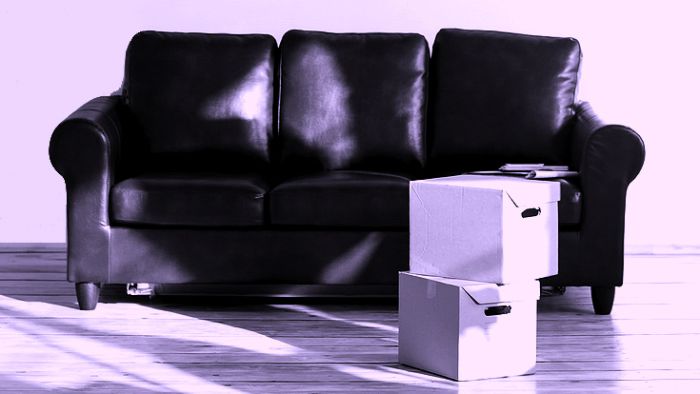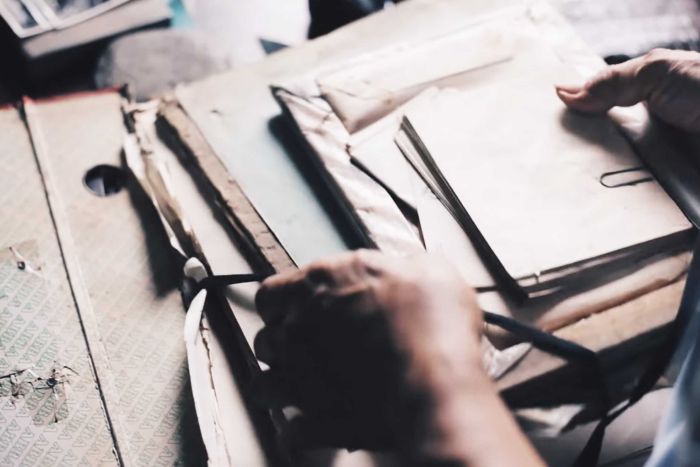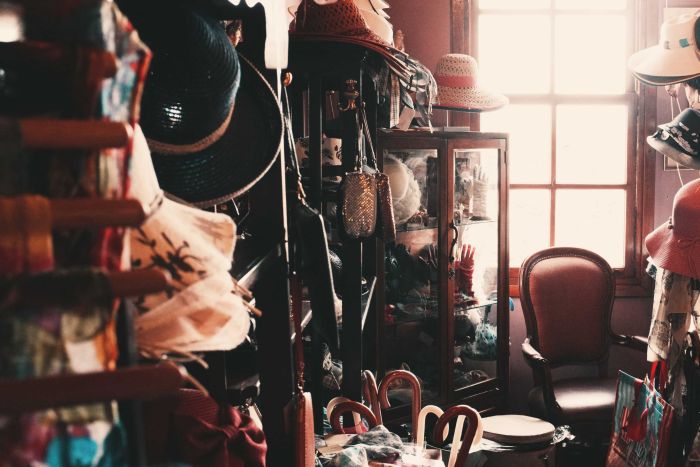
By Rebecca Huntley
Four years ago, a dear friend of the family, ‘Jane’, died of bowel cancer.
Jane had helped me around the house and looked after my first daughter, from the time she was a baby up until she went to school. We kept in touch over the years, and soon after my twins were born, she got the diagnosis.
The last time I saw her she was frail and could barely walk.
Sitting on the couch together in her daughter’s apartment, she took my hand and said, “Everything I have left I am wearing. I’ve got rid of the lot. I don’t want the kids to have to mess around with all my things when I’m gone”.
I was so impressed, not just by Jane’s organisation and foresight (which I knew all about), but by her generosity.
Leaving very few possessions behind was one of the greatest parting gifts she could give to her children.
Since then I’ve been thinking a lot about the things we leave behind when we die.
By ‘things’, I don’t mean the intangibles like the life lessons, memories and enduring love that sustain family and friends. Or the legacy of work done in our professional lives or the unpaid work in the community.
But the actual things. Candlesticks. Sporting trophies. Mugs.
You know, the kind of items that we occasionally wonder might be worth some mind-boggling sum if we ever managed to take them to an Antiques Roadshow. The millions, maybe billions of items, continuously gathering dust in the houses and apartments across the nation.
Of course, it has something to do with my stage of life.
As I head towards 50, I see many of my friends going through the emotionally draining and physically exhausting process of helping a sick or widowed parent pack up and sell a family home.
Friends tell me about the days and nights spent working through boxes and boxes of candlesticks, sporting trophies and mugs with an ailing or grieving parent.
And spending days working out what goes in the bin, gets donated to charity, given away or taken to the next dwelling, which is by necessity a half or a quarter of the size of the home they’re leaving.

It’s also a story echoed in the research I do with Australians.
And, on the whole, a story mostly told by daughters and granddaughters. In fact, I’ve found it’s largely these women responsible for this forced decluttering and managing of parents’ affairs at this time of life.
It takes its toll on these women, not just physically and emotionally, but even financially as they have to pull back from work to play this caring role.
It often comes at a time when the daughters are at the tail end of caring for their own children. A time when they thought they might have a chance to increase their paid work, or spend time and energy on personal goals.
Then suddenly, these women have responsibilities to parents almost as demanding as those associated with small children — with all the uncertainty and disruption, and far less of the joy that comes with looking after little ones.
In my role as a social researcher, I’ve met mothers trying to support a child through a final year of school — at the same time as helping a widowed parent find retirement living and pack up and sell their family home.
Death-induced decluttering. At the very moment you should be taking time and energy to grieve, you are knee-deep in cardboard boxes and vintage knick-knacks.
Decluttering is a global trend in affluent countries like Australia, led by a slew of ‘less is more’ advocates like author Marie Kondo and Oprah’s organising guru, Peter Walsh.
There’s Swedish death cleaning, döstädning, which is the practice of mindfully clearing out one’s own possessions during later years.
Not to mention the influential effects of the ABC’s War on Waste and how it’s challenging all of us to be more aware of what we buy and what we toss.

They’re all terrific developments. Although I worry that these messages sometimes get framed in terms of ‘good taste’ and ‘shame’.
Is it easier for some of us to declutter than it is for others? Is there a ‘clutter divide’ where the more affluent you are, the easier it is to live with less?
A single wealthy man who can afford a sparsely and elegantly decorated apartment in the centre of the city can certainly make do with fewer things, compared to a larger family living in the suburbs without social and cultural amenities within walking distance.
That said, visiting thousands of houses all over Australia for my work has made me realise many of us are living in homes full of things we find hard to get rid of — that is, until something forces us to.
Downsizing in a crisis (death, financial difficulty, illness) is doubly distressing.
I wonder whether it makes better sense to chuck the stuff and move to something smaller long before the inevitable happens.
If I am lucky enough to die of old age, I know what I want to leave behind. Saying goodbye to Jane on that couch confirmed it for me.
I will shuffle off this mortal coil with nothing left but a silk nightie, some precious paintings on the walls around me, and a handful of photos in my bony hands.
No candlesticks, just memories.
Complete Article ↪HERE↩!
